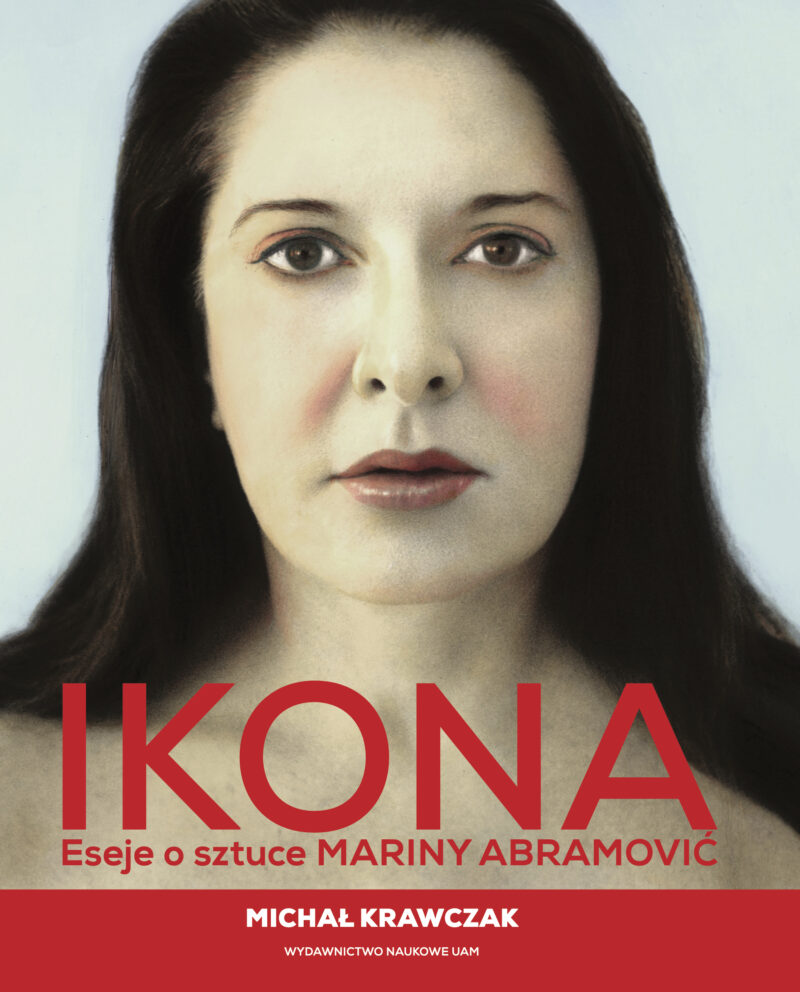Ikona. Eseje o sztuce Mariny Abramović (M. Krawczak)
Na autobiografię Mariny Abramović można spojrzeć jak na dynamiczny, płynny i otwarty ikonostas. Wizualność poszczególnych ikon wykreowanych przez artystkę cyrkuluje w systemie medialnego zapośredniczenia, którego elementem jest nasza percepcja. Ikony skonstruowane przez Abramović nie odsyłają jednak do absolutu teologicznego, transcendentnej boskości, ale do absolutu cybernetycznego, który realizuje się w mechanizmie sprzężenia zwrotnego. Różnorodne pod względem czasoprzestrzennym ikony tworzone przez Abramović dążą do skomponowania struktury ikonostasu, będącego w ciągłym stanie metamorfozy i transformacji. Jest on złożony z fragmentów: działań, obrazów, wspomnień, historii, zawsze jednak oznaczonych przez indywidualną wrażliwość artystki.
W książce opisany został nie tylko fenomen twórczości pionierki sztuki performansu (i jej popularności), jej twórczość stanowi także pryzmat umożliwiający zanalizowanie procesów, którym podlegała sztuka performansu w swojej już pięćdziesięcioletniej historii. Interesujące jest to, jak bardzo performans stał się głęboką strukturą współczesnej kultury, jak jego strategie i narracje w sposób nieuświadomiony powielane są w różnych formach we współczesnej kulturze medialnej.
Ikona. Eseje o sztuce Mariny Abramović, Wydawnictwo Naukowe UAM, ISBN:9788323235859, Poznań, 2020
